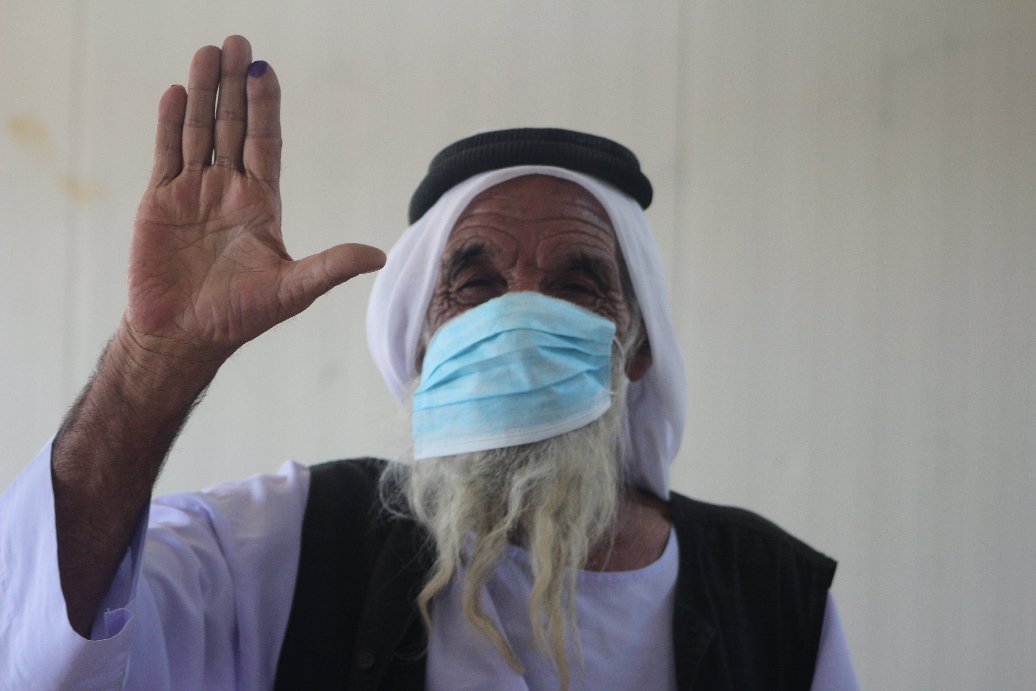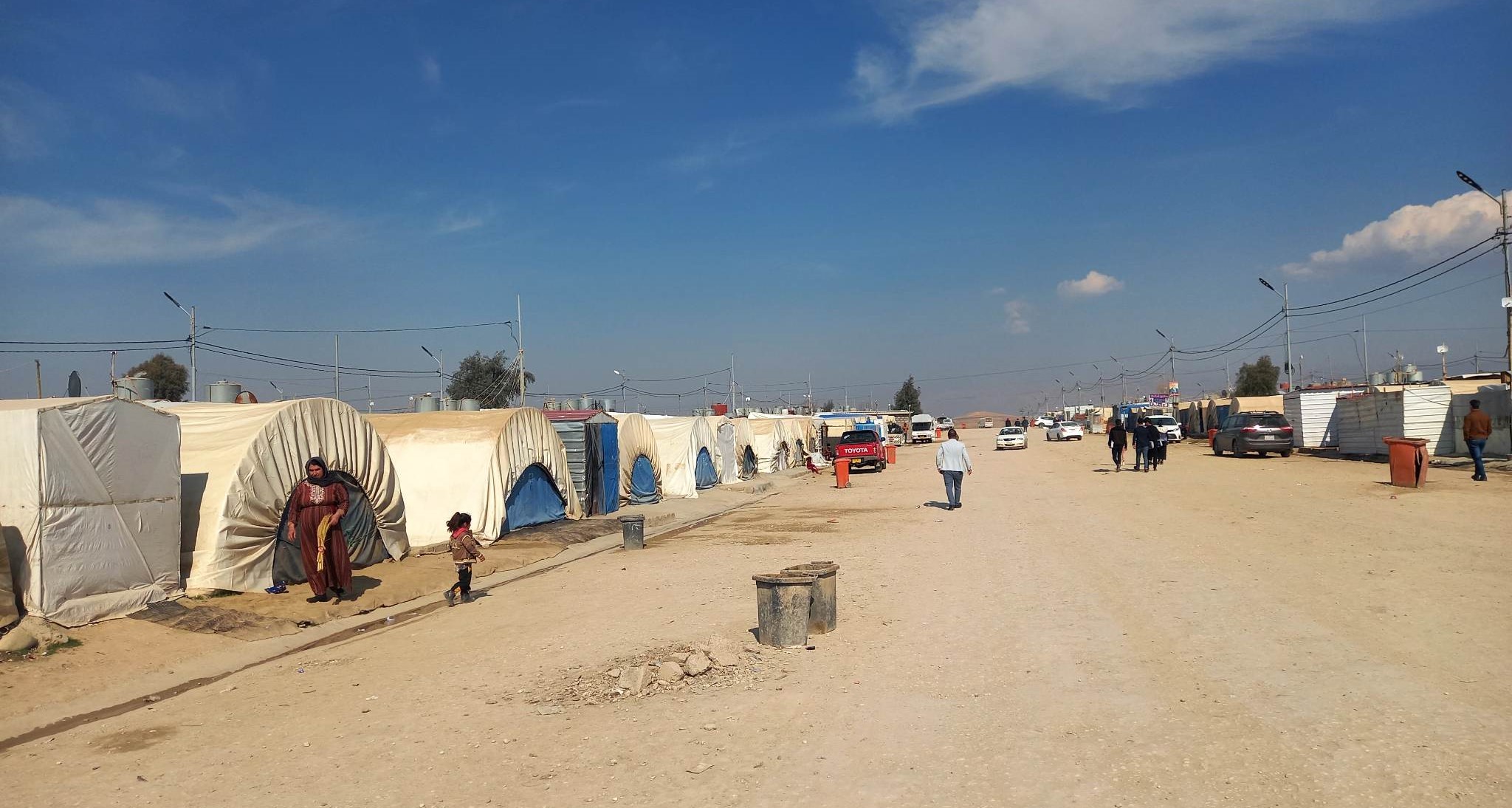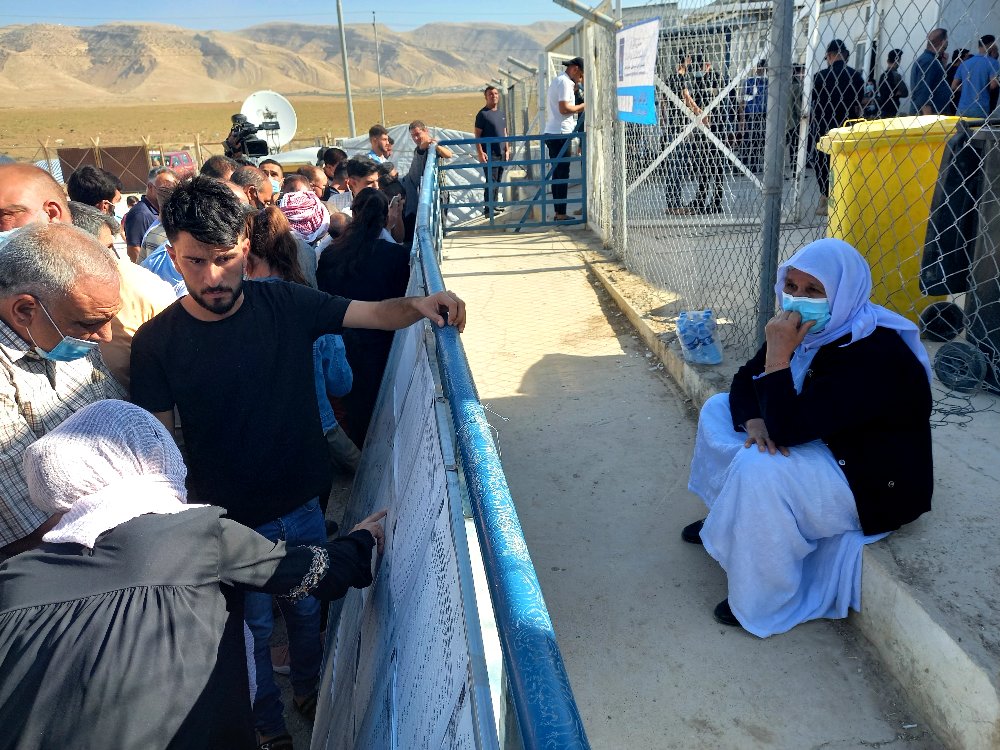In addition to the quota seats allocated to them, the Ezidis (Yazidis) are looking forward to winning more seats in the Nineveh Provincial Council, in order to have a role in the local government, but the problem they face is their dispersion and participation within the framework of several different lists and alliances in December provincial elections.
According to the electoral law, the Yazidi component has a quota seat out of a total of 29 seats in the Provincial Council for the Nineveh Provincial Council elections scheduled to be held on December 18, 2023.
Four candidates are competing for the quota seat, but the Yazidis have 25 other candidates within the framework of other lists and alliances, most of them on the Kurdistan Democratic Party KDP list.
Manaf Hassan, the official of the KDP’s elections institution in Nineveh, said, “We have 18 candidates in Singal (Sinjar) district, most of whom are Ezidis... Our party pays great attention to the religious and ethnic components, which is why they want to participate with us in the elections.”
Before the dissolution of the provincial councils in late 2019 by the decision of the Iraqi Parliament, the head of the Nineveh Provincial Council was an Ezidi from the KDP bloc.
The majority of Ezidis live in Shingal District, a disputed area west of Nineveh Governorate. The tolerant and vulnerable non-Muslim community fell under the control of the Isalmic State of Iraq and Syria ISIS (Daesh) on August 3, 2014, which resulted in thousands of Ezidis being killed, kidnapped, and displaced. Another section of the Ezidis lives in Sheikhan, Bashiqa and other areas of the Nineveh Plain.
The Ezidi Progress Party - active in Sinjar - is one of the parties that is preparing to reach the Nineveh Provincial Council by winning the quota seat.
Saad Battoush, head of the Progress Party, told KirkukNow, "We will participate with only one candidate for the quota seat. The new electoral system harms the quota seats and is not in the interest of the components. For example, we as Ezidis have a single quota seat."

The presence of Yazidi candidates in multiple lists and alliances and disunity of this religious component of their ranks leads to the dispersion of their votes, according to Omar Saleh, head of the Tribal Body in Shingal - an Ezidi party - who told (Kirkuk Now), “We are in favor of unifying the ranks of Ezidis.”
The new electoral system is not in favor of the quota seats
“In fact before the deadline for registering the names of lists and alliances has expired, we tried a lot with the Ezidi parties and groups within which Ezidis were nominated, including the Kurdistan Democratic Party and the Patriotic Union of Kurdistan (PUK), but the differences between them frustrated our efforts,” Saleh added.
“Our goal was to avoid the dispersion of the Ezidi voices and make their impact greater,” Omar Saleh added. “Unfortunately, like every time, we were not able to unite our ranks.”
A number of Ezidis nominated themselves as part of the Nineveh People's Alliance, in which the PUK and the Tribal Body in Shingal participate.
The head of the Ezidi Progress Party says that the presence of a large number of displaced people in Dohuk made them focus their efforts to win the quota seat. “More than 70% of the Ezidi votes in Shingal are in the camps of the (Iraqi) Kurdistan Region (IKR), and the majority of them vote for the KDP.”
In the last Iraqi Parliament elections held in 2021, the KDP won the three seats in the Shingal electoral district and all of the winning candidates were from the Ezidi component.
In the previous Nineveh Governorate Council elections, the Ezidis won eight seats within the framework of various lists and alliances, but Saad Battoush, head of the Progress Party, fears that the dispersion and division of the Yazidi votes will reduce the number of their seats to three seats.
Unfortunately, like every time, we were not able to unite our ranks
In the 2021 parliamentary elections, the number of voters in the Shingal electoral district was 270,000, but only 60,000 cast their votes, according to statistics from the Election Commission of Ezidi Progress Party.

Daoud Jundi, the head of the PUK’s organizations in Shingal, stated that the division and dispersion of votes does not only include the Ezidis, but has become a feature that accompanies the multiple ethnicities and religions in the governorate and even throughout Iraq,
“Therefore, forming a joint list for the Ezidis was impossible.”
Mishal Nawaf, 24-years-old resident of the Sinuny sub-district of Shingal, said, “This division is not in our interest. We have become parties and groups and do not have a common vision.”
He added that these parties preferred their personal and partisan interests over religious interests.
According to the electoral law, Nineveh Governorate is a single electoral district, and in this case, the Ezidi candidate can seek the votes of other Nineveh regions and vice versa.
The number of seats in the Nineveh Provincial Council, according to the election law, is 29 seats for over 3,800,000 people, three of which are quota seats allocated to Christians, Ezidis and Shabaks.
The dispersal of the Ezidis before the elections comes despite the fact that Shingal district has been regained from ISIS’s control since November 13, 2015, but only 35% of Sinjar’s displaced people, most of whom are Ezidis, have returned to their hometowns. Overall, the Ezidis hope to be able to address this problem through the local government in Nineveh.
In the 2021 parliamentary elections, 120,120 displaced people across the country were entitled to vote, most of whom were in Dohuk, according to statistics obtained by the (Kirkuk Now) from the Independent High Electoral Commission in Iraq IHEC.
Ezidis constitute 30% of 664,000 Internally Displaced Persons IDP in the IKR, and the fate of more than 2,600 kidnapped Ezidis remains unknown.
Khudida Karto, a displaced person residing in Kabartw camp in Dohuk Northern Province, said, “Let them participate in the elections however they want. For us, the most important thing is that they return us to Shingal and that the situation there stabilizes.”
“We hope that they will not be mere promises as we saw in the past.”





